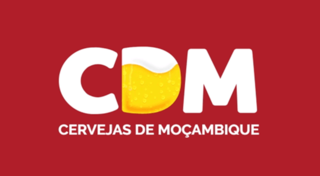
Mozambique, officially the Republic of Mozambique, is a country located in southeast Africa bordered by the Indian Ocean to the east, Tanzania to the north, Malawi and Zambia to the northwest, Zimbabwe to the west, and Eswatini and South Africa to the southwest. The sovereign state is separated from the Comoros, Mayotte and Madagascar by the Mozambique Channel to the east. The capital and largest city is Maputo.

Maputo is the capital and largest city of Mozambique. Located near the southern end of the country, it is within 120 kilometres of the borders with Eswatini and South Africa. The city has a population of 1,088,449 distributed over a land area of 347.69 km2 (134.24 sq mi). The Maputo metropolitan area includes the neighbouring city of Matola, and has a total population of 2,717,437. Maputo is a port city, with an economy centered on commerce. It is noted for its vibrant cultural scene and distinctive, eclectic architecture. Maputo was formerly named Lourenço Marques.

Armando Emílio Guebuza is a Mozambican politician who was the third President of Mozambique from 2005 to 2015.

Sociedade Central de Cervejas is a Portuguese brewery, founded in 1934. Its main output is the Sagres brand of beers. The company has been controlled by Heineken since April 2008.
Articles related to Mozambique include:
SABMiller was one of the top five global brewing companies, and had a range of over 150 beers, including international beers such as Pilsner Urquell, and Miller Genuine Draft, and local ones such as Gambrinus and Castle Milk Stout.
Anheuser-Busch InBev SA/NV is the largest beer company in the world. It had 200 brands prior to the merger with SABMiller on October 10, 2016. The combined ABInBev/SAB Miller entity has approximately 400 beer brands as of January 2017.

Filipe Jacinto Nyusi is a Mozambican politician serving since 2015 as the fourth President of Mozambique. He is the current leader of FRELIMO, the party that has governed Mozambique since its independence from Portugal in 1975. Additionally, he has served as the Chairman of the Southern African Development Community since August 2020. During his time in office, President Nyusi has promoted peace and security, and signed multiple agreements with the main opposition parties, RENAMO, to bring a definitive and lasting peace to Mozambique.
Nyungwe is a Bantu language of Mozambique. It is used as a trade language throughout Tete Province. It belongs in the Southeastern Bantu branch, particularly in Guthrie zone N. It is closely related to Sena, Chewa, Nsenga and Tumbuka.

The Mozambican Athletics Federation is the governing body for the sport of athletics in Mozambique.

The Liga Moçambicana de Basquetebol (LMB), known as the Liga Mozal for sponsorship reasons, is the highest basketball league in Mozambique. Founded in 1960, the league typically consists of eight teams. The winners of the competition earn the right to play in the qualifying tournaments of the Basketball Africa League (BAL).

The history of Maputo, the capital of Mozambique, traces its origins back over 500 years, when a fishing village developed by Maputo Bay on the site where the modern city of Maputo now stands. The first Europeans to discover the bay were Portuguese navigators led by António de Campo in 1502. In 1544, the Portuguese merchant and explorer Lourenço Marques reached the bay and named it Delagoa Bay. The Portuguese established a fort on the site, but were soon forced to abandon it. In 1721, the Dutch East India Company established Fort Lydsaamheid on the bay, but abandoned it due to conflicts with local Africans and the unhealthy environment. In the mid-18th century, the Portuguese returned to the bay, selling ivory to British ships carrying Indian textiles. In 1773, William Bolts of the Trieste Company reached the bay and claimed it for the Holy Roman Empire. Bolts and the Austrians were forced out in 1781 by Portuguese ships sent from Goa.

Maria Alice Mabota was a Mozambican human rights activist and president of the Mozambique Human Rights League.

Clube Ferroviário de Maputo is a basketball club based in Maputo, Mozambique. The team competes in the Mozambican League. In the Mozambican League, Maputo has won eleven national titles. Ferroviário played in the 2021 season of the Basketball Africa League (BAL).

Clube de Desportos da Costa do Sol, commonly known as CD Costa do Sol, is a Mozambican basketball team from Maputo. It is the basketball section of the multi-sports club, founded in 1955.

The Mozambique national badminton team represents Mozambique in international badminton team competitions. The Mozambican national team is controlled by the Mozambique Badminton Federation. Badminton has been played in Mozambique since the 1960s. Mozambique was one of the seven African countries that formed the Badminton Confederation of Africa on 31 August 1977.
Severino Elias Ngoenha is a Mozambican philosopher working in the area of Political philosophy. He is one of the main Portuguese-speaking African philosophers, along with other thinkers such as the Mozambican philosopher José Castiano, the Mozambican social theorist Elísio Macamo and the Angolan philosopher Filipe Cahungo.

Germany and Mozambique, have maintained diplomatic relations since Mozambique's independence in 1975. Since then, numerous visits by German politicians and business, commissions to Mozambique have followed, and a number of Mozambican politicians have visited the Federal Republic of Germany.

Cervejas de Moçambique (CDM) is a Mozambican beer brewing group, subsidiary of Anheuser-Busch InBev, that holds all the major Mozambican beer brands and controls approximately 94% of the Mozambican beer market.
Soico Televisão, abbreviated STV is a Mozambican commercial terrestrial television network founded in 2002 by Daniel David's Grupo Soico.














